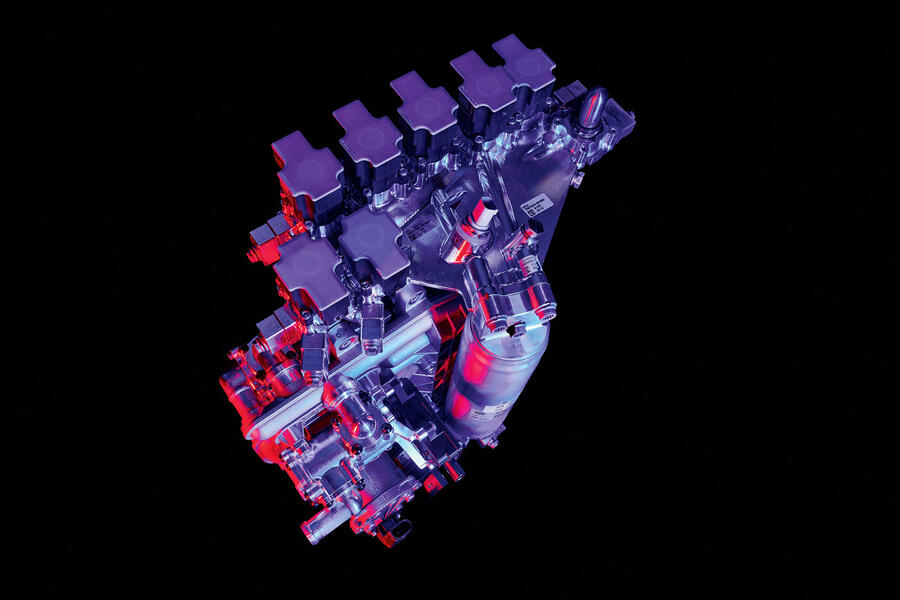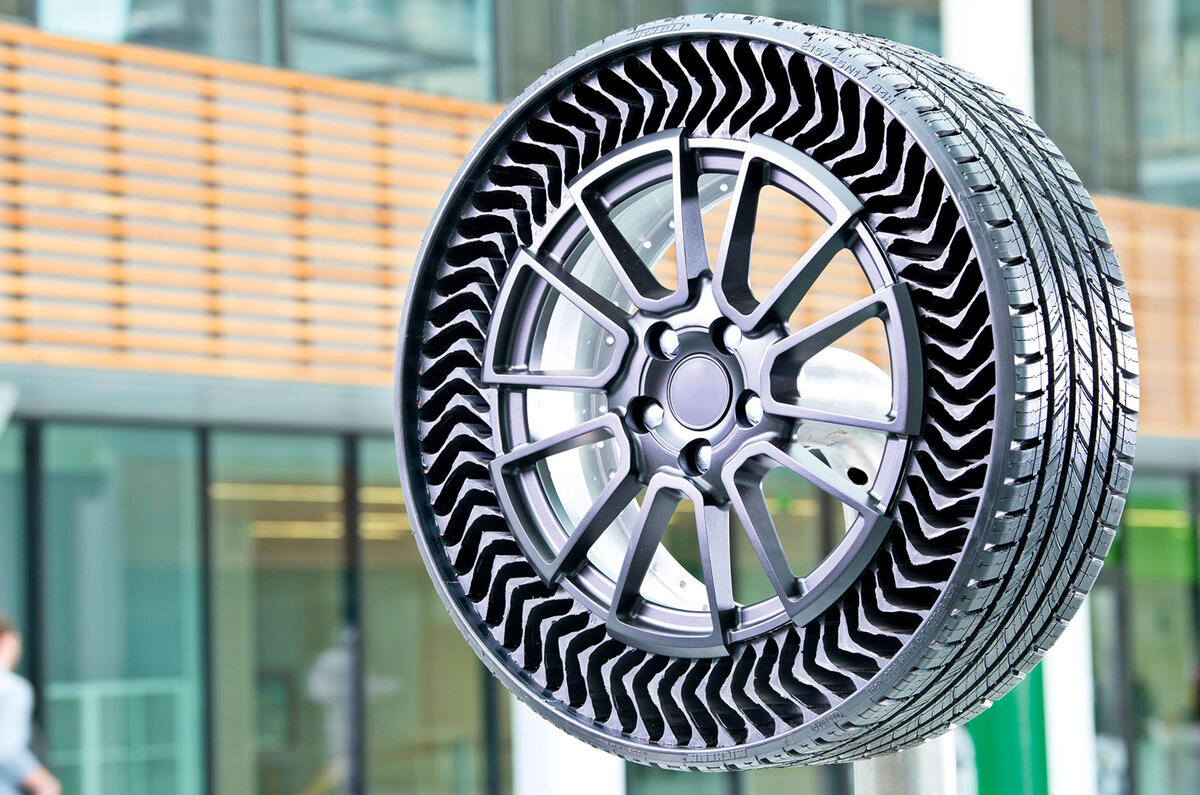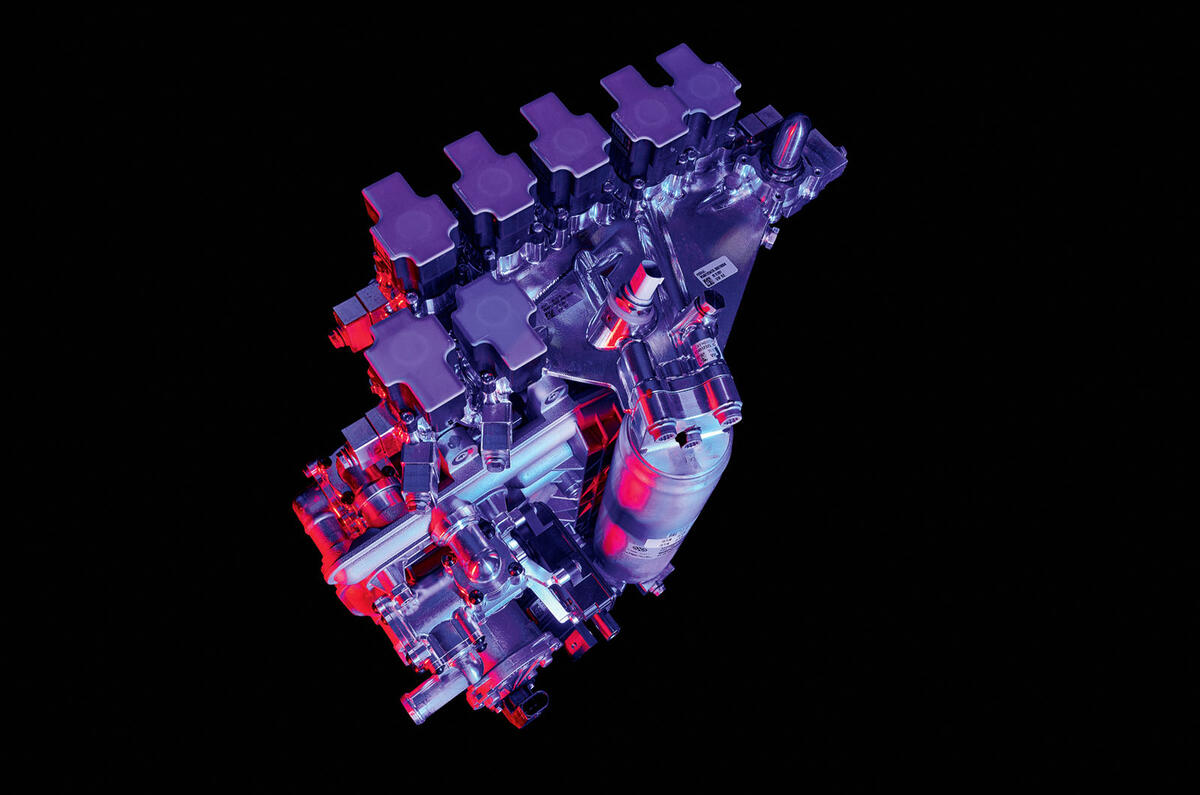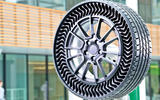Will the day come when we’re all routinely driving around on airless tyres? Do we even need them?
Tyre makers have been tinkering with the idea of reinventing the wheel for a number of years now, but so far, the brainchild of Scotsmen Robert Thomson and later John Boyd Dunlop, inventors of the pneumatic tyre, has yet to be bettered.
In January, Michelin announced the Uptis, its concept for a puncture-proof tyre, would go on trial in Singapore on a fleet of DHL vans. The Uptis airless tyres will be introduced during the course of 2023, the plan being to overcome the costly problem of downtime and tyres scrapped through punctures on last-mile delivery vehicles.
The trial raises the question: could the puncture-proof tyres be an advantage for car drivers? Michelin says the tyres are intended for cars as well as light vans and says they are more resilient to ‘road hazards’ than run-of-the-mill tyres.
Because there’s no air involved, the Uptis will also overcome the problem that plagues not just delivery fleets working on a high-duty cycle but the average car driver too: neglecting tyre pressures. Pneumatic tyres rely to a large degree on being run at the correct pressures to perform properly.
Allowing a drop below the design pressure reduces grip, impairs handling and steering, and increases rolling resistance and with that energy consumption and CO2 emissions.
Poor tyre maintenance also causes premature and uneven tyre wear and uneven tyre pressures around the car can influence stability under braking, especially in the wet. So all in all, poor tyre pressure maintenance is bad news, dangerous if taken to extremes and expensive even if not.
Like most tyre companies, Michelin is working hard on the sustainability of its tyres, especially in relation to end of life, and is experimenting with the use of sustainable materials.
It sees airless technology as a good fit with its “fully sustainable tyre by 2050” mantra, pointing out that 12% of tyres are scrapped early due to flats and blowouts and another 8% through premature or uneven wear due to poor tyre pressure maintenance.
The company reckons airless tyres could save 200 million tyres a year. Michelin already has some experience with airless tyres. The Tweel employs airless radial tyre technology but its use is limited to off-road vehicles such as those used in the construction industry and for load handling.
On a strictly concept level, Goodyear showed its Aero airless tyre concept back in 2019. Resembling the Uptis and Tweel, it features radial deformable spokes for support in place of air, betwixt tread and wheel.
The Aero goes one step (quite a big step actually) further and also rotates to the horizontal, so the spokes become fan blades to generate thrust and lift an autonomous, flying car into the air.
A less far-fetched feature, and one that tyre manufacturers are taking seriously at a research level, is the use of sensing tech to monitor road conditions, wear and the structural integrity of the tyre.
Volkswagen taking EV component manufacturing in-house








Join the debate
Add your comment
I'm just amazed that no one has come up with an alternative to a pneumatic tyre by now. I always imagined one filled with a foam that might replicate the properties and behaviour of air.